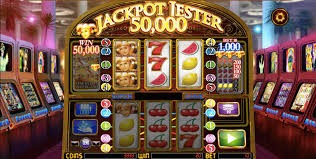Leveraging Augmented Reality (AR) for Immersive Betting Experiences
Leveraging augmented reality (AR) for immersive betting experiences is an innovative initiative in the soccer betting industry aimed at providing bettors with engaging and interactive betting experiences. AR technology overlays digital content and information onto the real-world environment, allowing bettors to visualize betting odds, match statistics, and other relevant information in real-time through their mobile devices or AR-enabled glasses. By leveraging AR technology, operators can create immersive and interactive betting experiences that blur the lines between the digital and physical worlds, enhancing bettors’ engagement and enjoyment of the betting process.
One key advantage of leveraging AR for immersive betting experiences is the ability to provide bettors with real-time access to relevant information and insights directly within their physical environment. Bettors can use AR-enabled devices to view live betting odds, player statistics, and other betting-related information overlaid onto the soccer pitch or stadium in real-time, enhancing their understanding of the game and enabling them to make more informed betting decisions. This real-time access to information creates a more dynamic and interactive betting experience that captivates and engages bettors throughout the duration of the match.
Moreover, AR technology can enhance bettors’ engagement with live matches by providing interactive features and experiences that allow them to participate in the action in real-time. For example, bettors can use AR-enabled devices to place virtual bets on specific outcomes or events during the match, such as the next goal scorer or the final score, and track their virtual bets as the match unfolds. Additionally, operators can incorporate gamification elements, such as challenges, leaderboards, and rewards, into AR betting experiences to incentivize participation and enhance bettors’ enjoyment of the betting process.
Furthermore, AR technology can enhance the social aspect of betting by enabling bettors to connect and interact with other fans and bettors in real-time during live matches. Bettors can use AR-enabled devices to view virtual avatars of other fans and bettors in the stadium, participate in virtual betting communities and forums, and share betting tips and predictions with each other in real-time. This social interaction fosters a sense of camaraderie and community among bettors, enhancing their overall betting experience and satisfaction.
In conclusion, leveraging augmented reality for immersive betting experiences is a transformative initiative in the soccer betting industry that provides bettors with engaging, interactive, and dynamic betting experiences. By overlaying digital content and information onto the real-world environment, operators can create immersive betting experiences that enhance bettors’ engagement and enjoyment of the betting process. As AR technology continues to evolve, operators must explore innovative ways to leverage AR for betting applications and provide bettors with immersive and interactive experiences that captivate and delight them.
Implementing Dynamic Odds Adjustments for In-Play Betting
Implementing dynamic odds adjustments for in-play betting is a strategic initiative in the soccer betting industry aimed at providing bettors with real-time, responsive, and competitive betting odds during live matches. In-play betting, also known as live betting, allows bettors to place bets on various outcomes and events during a match as it unfolds in real-time, such as the next goal scorer, the final score, or the outcome of a penalty kick. By implementing dynamic odds adjustments, operators can update betting odds in real-time based on the current state of the match, enabling bettors to capitalize on changing betting opportunities and maximize their potential returns.
One key advantage of implementing dynamic odds adjustments for in-play betting is the ability to provide bettors with competitive and responsive betting odds that reflect the current state of the match. Operators can use real-time data feeds and predictive algorithms to analyze the flow of the game, assess the likelihood of various outcomes and events, and adjust betting odds accordingly to maintain a balanced and competitive betting market. This responsiveness to changing match conditions ensures that bettors have access to accurate and up-to-date betting odds throughout the duration of the match, enabling them to make more informed and strategic betting decisions.
Moreover, dynamic odds adjustments for in-play betting can enhance bettors’ engagement with live matches by providing them with opportunities to react to unfolding events and capitalize on betting opportunities in real-time. For example, if a team scores a goal or receives a red card during a match, operators can adjust the betting odds for various outcomes, such as the final score or the next goal scorer, to reflect the impact of these events on the game. This enables bettors to react quickly to changing match conditions and adjust their betting strategies accordingly, enhancing their overall betting experience and satisfaction https://stpeterspaisley.org/.
Furthermore, dynamic odds adjustments for in-play betting can create a more dynamic and competitive betting environment that attracts and retains bettors. By offering responsive and competitive betting odds, operators can differentiate their betting platforms and attract bettors who value real-time betting opportunities and competitive odds. Additionally, dynamic odds adjustments can increase betting activity and turnover during live matches, generating additional revenue for operators and maximizing the potential returns for bettors.
In conclusion, implementing dynamic odds adjustments for in-play betting is a strategic initiative in the soccer betting industry that provides bettors with real-time, responsive, and competitive betting opportunities during live matches. By adjusting betting odds in real-time based on the current state of the match, operators can provide bettors with accurate and up-to-date betting odds that reflect the flow of the game, enabling them to make more informed and strategic betting decisions. As the popularity of in-play betting continues to grow, operators must prioritize dynamic odds adjustments as a key strategy for attracting and retaining bettors in the competitive betting market.











